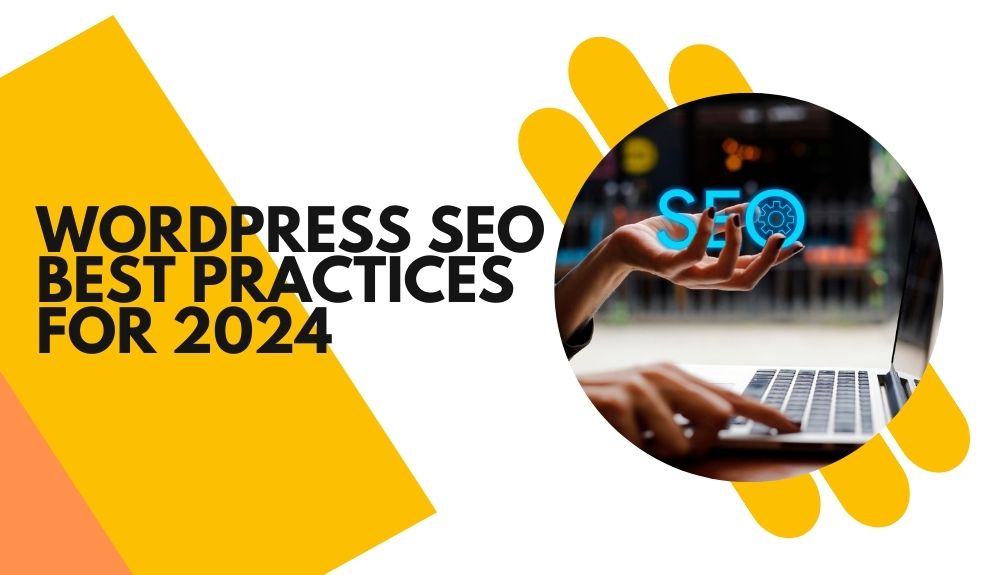Welcome to the dynamic world of WordPress SEO! As we dive into 2024, it’s crucial to stay ahead of the curve and implement the best practices to boost your website’s visibility and rankings. In this blog post, we’ll explore the latest strategies and techniques that can help you optimize your WordPress site for search engines effectively. So, buckle up and get ready to supercharge your SEO game!
Understanding SEO in 2024
In 2024, understanding SEO is more crucial than ever for WordPress website owners. With search engines constantly evolving their algorithms, staying updated on the latest trends and best practices is key to maintaining a strong online presence.
SEO in 2024 goes beyond just keywords and backlinks. It’s about creating high-quality content that resonates with your target audience while also being optimized for search engines. This means focusing on user intent, relevancy, and providing valuable information that solves users’ problems.
Additionally, technical aspects like site speed, mobile-friendliness, and security play a significant role in SEO success. Ensuring your website is technically sound will not only improve your search engine rankings but also enhance the overall user experience.
As we look ahead to 2024, it’s clear that SEO will continue to evolve alongside advancements in technology and changes in consumer behavior. Staying informed and adaptable is essential for navigating the ever-changing landscape of digital marketing.
The Importance of Mobile Optimization
In today’s digital landscape, mobile optimization is no longer just a nice-to-have—it’s a must. With more and more users accessing websites on their smartphones and tablets, ensuring that your site is fully optimized for mobile devices is crucial.
Mobile-friendly websites not only provide a better user experience but also improve your SEO rankings. Search engines like Google prioritize mobile-friendly sites in their search results, giving them an edge over non-optimized competitors.
Responsive design plays a key role in mobile optimization, as it allows your website to adapt seamlessly to different screen sizes. This ensures that visitors have a consistent and user-friendly experience regardless of the device they are using.
By investing in mobile optimization, you not only cater to the needs of your current audience but also position yourself for success in an increasingly mobile-driven world. So, don’t overlook the importance of optimizing your site for mobile devices—it could make all the difference in reaching and engaging with your target audience effectively.
Utilizing Voice Search for SEO

Voice search is revolutionizing the way people interact with technology. With the rise of virtual assistants like Siri and Alexa, optimizing your WordPress site for voice search has become crucial in 2024.
To leverage voice search for SEO, focus on long-tail keywords that mimic natural conversational language. Users tend to phrase queries differently when speaking compared to typing, so tailoring your content to match these patterns can improve your visibility in voice search results.
Another key aspect is ensuring your website loads quickly and is mobile-friendly since many voice searches are made on smartphones or smart speakers. By prioritizing mobile optimization, you can enhance the user experience and boost your SEO rankings.
Incorporating schema markup can also help search engines better understand and index your content for voice searches. This structured data makes it easier for algorithms to extract relevant information from your site and deliver it as a spoken result.
Optimizing for User Experience and Accessibility
When it comes to SEO for WordPress best practices for 2024, optimizing for user experience and accessibility is key.
Start by ensuring your website is easy to navigate, with clear menus and logical organization. Make sure your site loads quickly on all devices to provide a seamless user experience.
Incorporate alt text for images to improve accessibility for visually impaired users and boost SEO. Utilize heading tags properly to structure your content in a way that’s easy for both users and search engines to understand.
Consider implementing responsive design to cater to mobile users, enhancing the overall user experience. Additionally, prioritize readability by using legible fonts and appropriate color contrast.
By focusing on improving user experience and accessibility, you not only enhance SEO but also create a more inclusive online environment for all visitors.
Leveraging Social Media for SEO
In the rapidly evolving landscape of SEO, leveraging social media has become a crucial aspect for optimizing your WordPress website. Social media platforms not only help drive traffic to your site but also play a significant role in improving your search engine rankings.
By actively engaging with your audience on platforms like Facebook, Instagram, and Twitter, you can increase brand visibility and awareness. Sharing high-quality content that resonates with your followers encourages them to visit your website, ultimately boosting its SEO performance.
Utilizing social media for SEO involves more than just sharing links. It’s about building relationships with your audience, fostering trust, and establishing credibility in your niche. Encouraging user interaction through comments, likes, and shares signals to search engines that your content is valuable and relevant.
Integrating social media strategies into your overall SEO plan can enhance the visibility of your WordPress site and drive organic traffic. Stay consistent in posting quality content across various platforms to strengthen your online presence and improve search engine rankings.
The Role of Content Marketing in SEO

In the realm of WordPress SEO, content marketing plays a pivotal role in driving organic traffic to your website. By creating high-quality, relevant content that resonates with your target audience, you can not only improve your search engine rankings but also establish credibility and authority in your niche.
Content marketing goes beyond just churning out blog posts or articles; it involves understanding the needs and preferences of your audience and delivering valuable information that solves their problems or fulfills their desires. This approach not only attracts more visitors to your site but also keeps them engaged and coming back for more.
Moreover, by incorporating strategic keywords into your content and optimizing meta tags, headers, and images, you can enhance the visibility of your website on search engines. Remember, quality always trumps quantity when it comes to content creation – focus on producing well-researched, insightful pieces that add value to the reader’s experience.
By consistently publishing fresh and engaging content across various platforms such as blogs, social media, and email newsletters, you can amplify brand awareness and foster relationships with your audience. Content marketing is a powerful tool that aligns seamlessly with SEO strategies in maximizing online presence and driving sustainable growth.
Tracking and Analyzing Your SEO Progress
Tracking and analyzing your SEO progress is vital for understanding the effectiveness of your strategies. Utilize tools like Google Analytics to monitor website traffic, user behavior, and keyword performance. Regularly check your search engine rankings to see how well your content is performing in organic searches.
Pay attention to metrics like bounce rate, click-through rate, and conversion rates to gauge user engagement with your site. Use this data to make informed decisions on what changes or optimizations are needed to improve your SEO efforts.
Implementing proper tracking mechanisms allows you to identify trends over time and adjust strategies accordingly. By continuously monitoring and analyzing data, you can stay proactive in optimizing your website for better search engine visibility.
Remember that SEO is an ongoing process that requires consistent monitoring and adjustments based on performance insights. Stay committed to tracking and analyzing your SEO progress to ensure long-term success in driving organic traffic to your WordPress site.
Common Mistakes to Avoid in WordPress SEO
When it comes to WordPress SEO, there are common mistakes that can hinder your website’s performance in search engine results. One of the most frequent errors is neglecting to optimize meta titles and descriptions for each page or post on your site. These elements play a crucial role in attracting clicks from search engine users.
Another mistake is overlooking the importance of internal linking within your content. By strategically linking related articles or pages, you can improve user navigation and boost your site’s overall SEO value. Additionally, failing to create high-quality and engaging content regularly can harm your site’s visibility in search results.
Ignoring mobile optimization is another critical mistake in today’s digital landscape. With more users accessing websites via mobile devices, ensuring that your site is responsive and fast-loading on smartphones and tablets is essential for SEO success.
Conclusion
In the ever-evolving landscape of Search engine optimization (SEO), staying ahead of trends and best practices is crucial for WordPress websites to thrive in 2024. By implementing mobile optimization, leveraging voice search, focusing on user experience and accessibility, utilizing social media, mastering content marketing, and consistently tracking progress through analytics, WordPress users can boost their SEO efforts effectively.
Remember to avoid common mistakes like neglecting site speed or keyword stuffing. Instead, focus on creating valuable content that resonates with your audience and enhances your website’s visibility online.
By following these WordPress SEO best practices for 2024, you can elevate your website’s rankings and drive more organic traffic. Stay proactive in adapting to changes in the digital landscape and continually refine your strategies to ensure long-term success in SEO. Cheers to optimizing your WordPress website for success!












